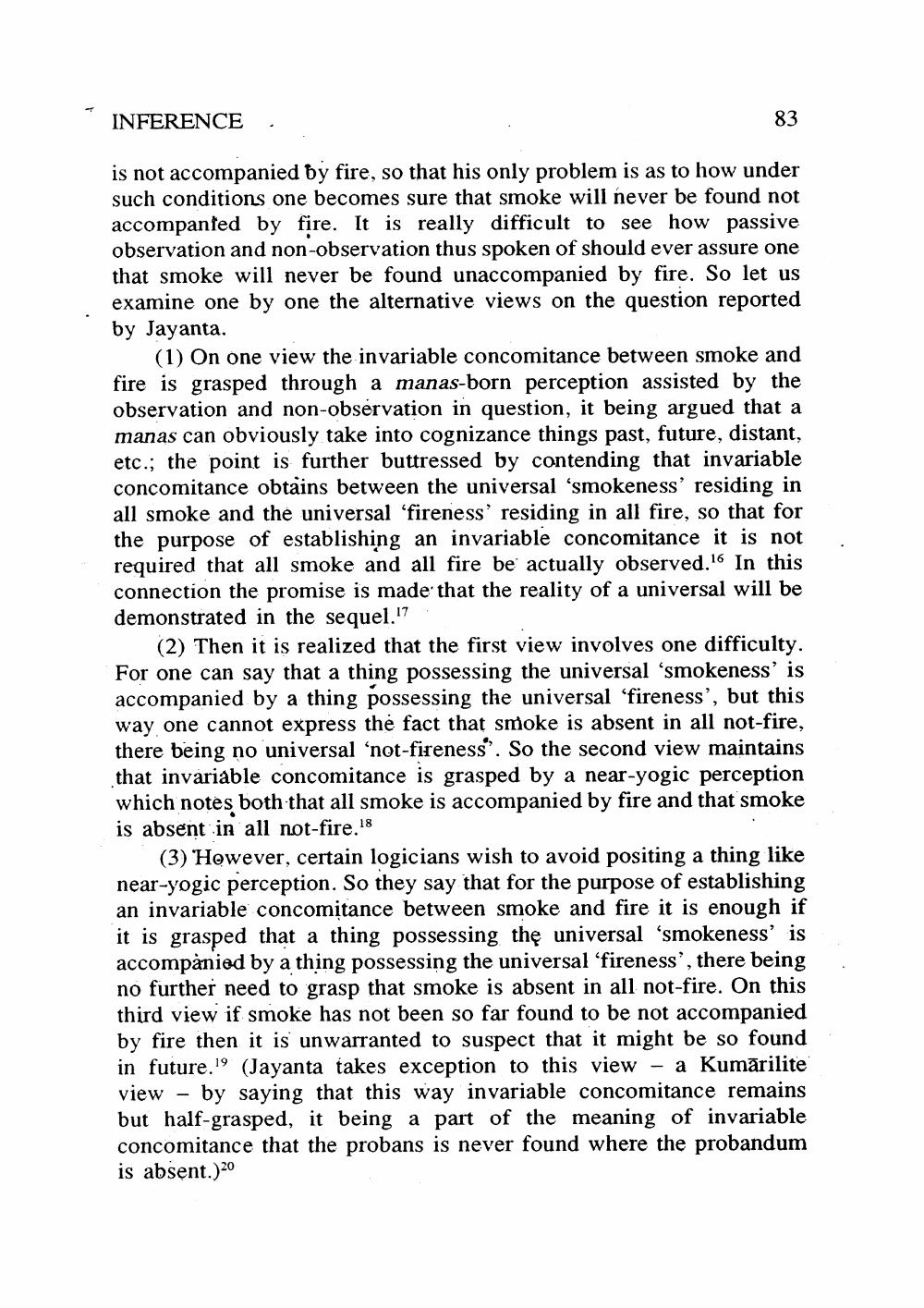________________
INFERENCE
83
is not accompanied by fire, so that his only problem is as to how under such conditions one becomes sure that smoke will never be found not accompanied by fire. It is really difficult to see how passive observation and non-observation thus spoken of should ever assure one that smoke will never be found unaccompanied by fire. So let us examine one by one the alternative views on the question reported by Jayanta.
(1) On one view the invariable concomitance between smoke and fire is grasped through a manas-born perception assisted by the observation and non-observation in question, it being argued that a manas can obviously take into cognizance things past, future, distant, etc.; the point is further buttressed by contending that invariable concomitance obtains between the universal 'smokeness' residing in all smoke and the universal 'fireness' residing in all fire, so that for the purpose of establishing an invariable concomitance it is not required that all smoke and all fire be actually observed. In this connection the promise is made that the reality of a universal will be demonstrated in the sequel."
(2) Then it is realized that the first view involves one difficulty. For one can say that a thing possessing the universal 'smokeness' is accompanied by a thing possessing the universal 'fireness', but this way one cannot express the fact that smoke is absent in all not-fire. there being no universal 'not-fireness. So the second view maintains that invariable concomitance is grasped by a near-yogic perception which notes both that all smoke is accompanied by fire and that smoke is absent in all not-fire.
(3) However, certain logicians wish to avoid positing a thing like near-yogic perception. So they say that for the purpose of establishing an invariable concomitance between smoke and fire it is enough if it is grasped that a thing possessing the universal 'smokeness' is accompanied by a thing possessing the universal 'fireness', there being no further need to grasp that smoke is absent in all not-fire. On this third view if smoke has not been so far found to be not accompanied by fire then it is unwarranted to suspect that it might be so found in future. (Jayanta takes exception to this view a Kumarilite view by saying that this way invariable concomitance remains but half-grasped, it being a part of the meaning of invariable concomitance that the probans is never found where the probandum is absent.)20




